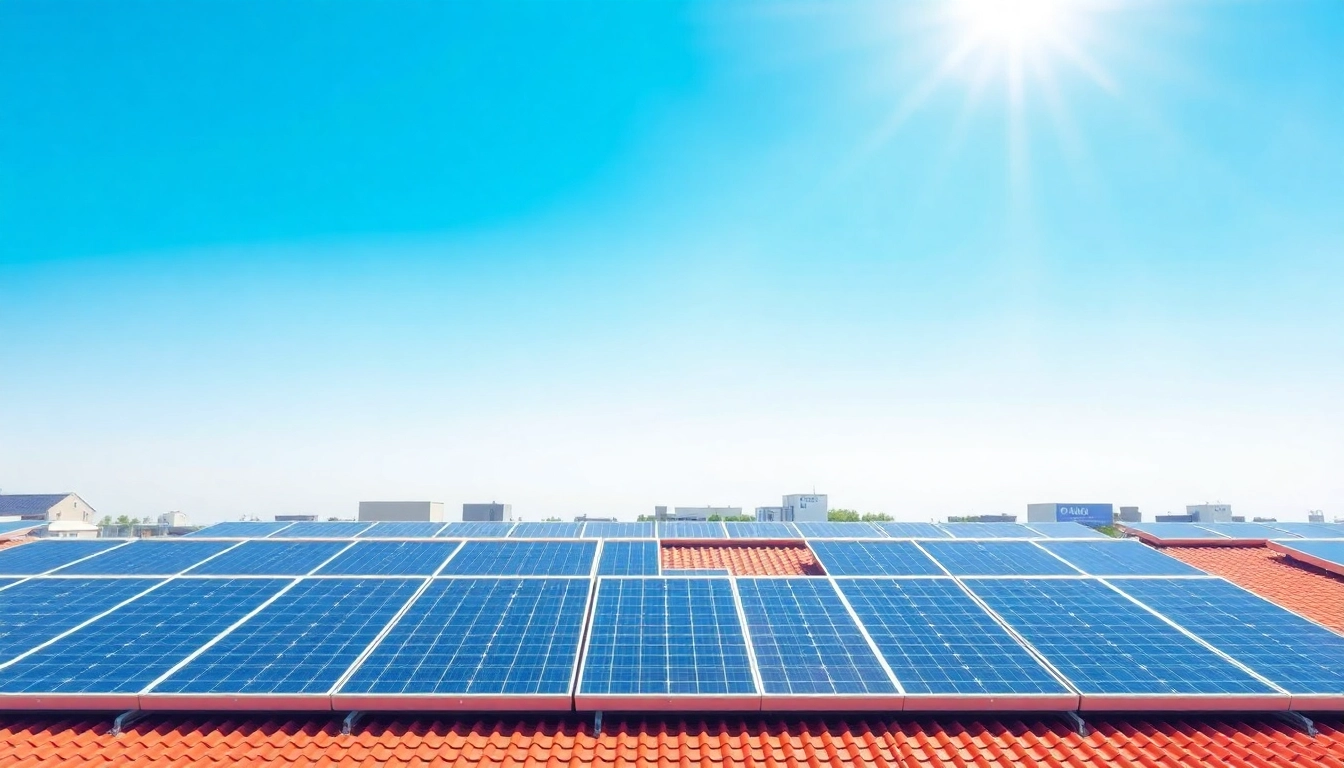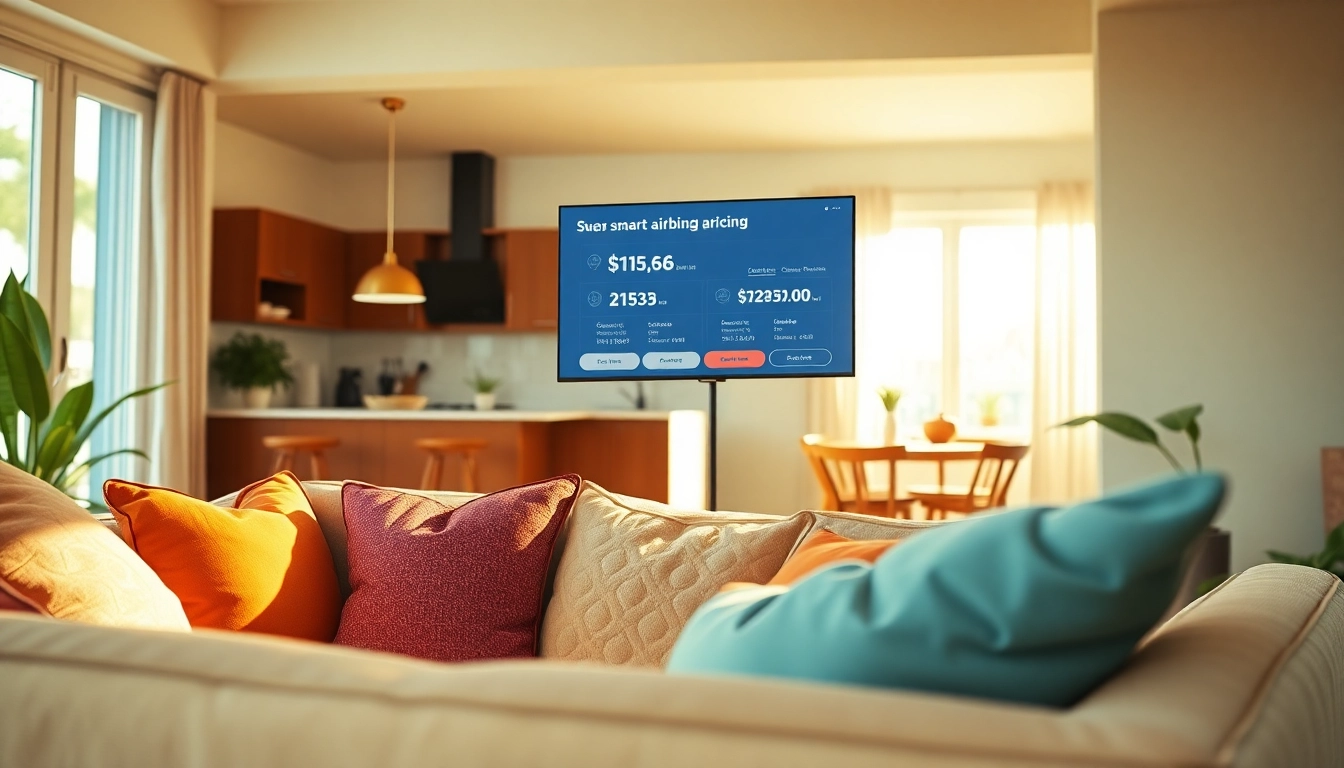Introduction to Commercial Solar
As businesses strive to become more energy-efficient and environmentally responsible, commercial solar has emerged as a powerful solution. This renewable energy source not only helps in reducing carbon footprints but also offers significant economic advantages. In an era where sustainability is at the forefront of corporate strategy, understanding commercial solar systems and their applications becomes imperative for successful business operations.
What is Commercial Solar?
Commercial solar refers to solar energy systems specifically designed for businesses and large-scale applications. Unlike residential solar systems that cater to individual households, commercial solar installations can vary significantly in size, from small rooftop setups on retail outlets to expansive solar farms capable of generating megawatts of power for various industries. These systems involve solar panels, inverters, and battery storage, which work collectively to convert sunlight into usable electricity.
The Importance of Solar in Business
In today’s competitive market, adopting sustainable practices is not just an ethical obligation; it can substantially enhance a company’s brand reputation, attract eco-conscious customers, and improve the bottom line. The incorporation of solar power helps businesses cut expenses related to electricity, hedge against rising energy prices, and qualify for an array of government incentives aimed at promoting renewable energy usage. Furthermore, businesses showcasing a commitment to sustainability often enjoy enhanced loyalty from customers and employees, ultimately translating into a greater competitive edge.
Overview of Commercial Solar Systems
Commercial solar systems can be categorized into various types, including rooftop installations, ground-mounted arrays, and innovative structures like solar canopies. These systems are designed not just for energy generation but also for economic feasibility, often tailored to a business’s unique energy needs and architectural considerations. By understanding the different types of systems, businesses can effectively choose installations that align with their energy consumption patterns and financial goals.
Benefits of Commercial Solar
Cost Savings and Financial Incentives
One of the most compelling reasons for businesses to consider commercial solar is the potential for significant cost savings. By generating their own electricity, companies can drastically reduce their utility bills. Initial estimates indicate that a well-designed solar system can save businesses anywhere from 20% to 50% on energy costs. Furthermore, there are various incentives available, such as the federal Investment Tax Credit (ITC), which allows businesses to deduct a substantial percentage of their solar installation costs from their federal taxes. Local and state rebates can further improve the financial viability of solar projects.
Environmental Impact and Sustainability
Transitioning to solar power contributes significantly to reducing greenhouse gas emissions. Solar energy systems emit no pollutants, providing clean energy that helps combat climate change. Businesses that adopt solar power not only fulfill their responsibilities towards environmental stewardship but can also enhance their marketing strategies. Companies can leverage their sustainability initiatives to appeal to consumers increasingly prioritizing eco-friendly products and services.
Energy Independence for Businesses
Reliance on traditional energy sources can leave businesses vulnerable to fluctuating energy prices and supply disruptions. By investing in solar, companies gain energy independence, allowing them to stabilize their energy costs and increase their resilience against energy market volatility. Moreover, for businesses operating in remote areas or locations with unreliable grid access, solar can serve as a reliable, continuous energy solution.
Types of Commercial Solar Systems
Rooftop Solar Installations
Rooftop solar panels are ideal for businesses with substantial building space. These systems utilize the unoccupied roof area to harness solar energy without requiring additional land. An added advantage is that rooftop installations often allow for energy generation during peak consumption hours, helping businesses maximize their cost-saving potential. However, roof conditions, structural capacity, and local regulations are critical considerations when deciding on rooftop installations.
Ground-Mounted Solar Arrays
Ground-mounted solar arrays are generally employed by businesses with substantial land availability, such as agricultural operations, manufacturing facilities, or warehouses. These installations can be built in larger arrays, allowing for optimized energy production. Additionally, ground-mounted systems enable easier maintenance and expansion compared to rooftop designs. The installation’s orientation and tilt can be optimized for maximum solar exposure, presenting a significant advantage in energy efficiency.
Solar Carports and Innovative Structures
Carports and solar canopies are emerging options that provide dual functionality by sheltering vehicles while generating electricity simultaneously. These structures harness the sun’s energy while offering parking solutions, making them ideal for businesses in the retail and service sectors. Innovative designs can also contribute to a company’s aesthetic appeal, making locations more inviting to customers while enhancing their commitment to renewable energy.
Choosing the Right Commercial Solar Provider
Factors to Consider When Selecting a Provider
Selecting a commercial solar provider is a critical decision, as the success of a solar project hinges on the expertise and reliability of the installer. Businesses should prioritize providers with extensive experience in commercial solar installations, strong references, and proven project management capabilities. Additionally, it is vital to ensure that the provider offers a comprehensive range of services, including consultation, design, installation, and ongoing maintenance support.
Questions to Ask Potential Vendors
When exploring commercial solar options, there are several pertinent questions to pose to potential vendors:
- What is your experience with commercial installations similar to ours?
- Can you provide references from past clients?
- What warranties do you offer for both equipment and installation?
- Do you handle all permits and inspections, or will that require additional services?
- What financing options do you provide to assist with upfront costs?
Case Studies of Successful Installations
Several case studies illustrate the success of commercial solar installations across various industries. These examples highlight different aspects, from cost savings and energy independence to enhanced brand loyalty. For instance, a large retail chain reported a 30% reduction in energy costs after installing solar panels on their rooftops, significantly impacting their overall profitability. Similarly, an agricultural business utilizing a ground-mounted solar array cut its energy bills by half, allowing for reinvestment in other critical areas of their operation.
Future Trends in Commercial Solar
Advancements in Solar Technology
The solar industry continues to evolve rapidly, with advancements in technology enhancing the efficiency and affordability of solar systems. Innovations in solar panel manufacturing and energy conversion processes are expected to reduce costs and improve performance. Technologies such as bifacial solar panels, which capture sunlight from both sides, and solar trackers that adjust panel angles throughout the day are leading to greater generation efficiencies, making commercial solar installations more attractive than ever.
Integrating Storage Solutions
As energy storage technologies advance, integrating battery systems with commercial solar installations becomes increasingly feasible and desirable. Energy storage allows businesses to store excess energy generated during the day for use during peak hours or even at night. This capability not only maximizes energy savings but also enhances energy reliability and reduces dependency on the grid. Companies investing in this dual approach stand to benefit from optimized energy management and greater cost efficiencies, ultimately leading to higher returns on investment.
Policies and Regulations Impacting Commercial Solar
The regulatory landscape surrounding solar energy is dynamic, influencing how commercial solar systems are deployed. Businesses need to stay informed about local, state, and federal incentives that can enhance the financial viability of their solar projects. Additionally, understanding regulations related to net metering, interconnection standards, and building codes is essential for seamless project execution. As the governmental focus on renewable energy intensifies, ongoing changes in policy will likely continue to shape the commercial solar landscape.
Conclusion
The transition to commercial solar is more than just a trend; it represents a pivotal shift towards sustainable business practices and energy independence. With the financial benefits, environmental impact, and technological advancements, commercial solar stands as a compelling option for businesses looking to innovate and thrive in the modern economy. By understanding the various aspects of commercial solar, including systems integration, provider selection, and upcoming trends, businesses can position themselves at the forefront of the energy transition, capitalizing on the myriad benefits that solar energy offers.



